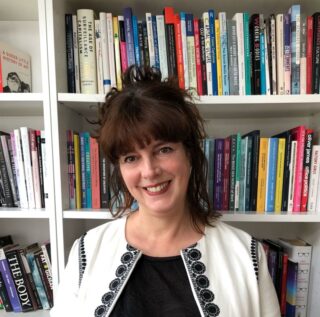ACAT Seminar Series

Graphing Together: Visualising Curtin’s Co-Authorship Network
Presented by Kathryn Phillips
Thursday 10 July 2025
Curtin University’s Institutional Repository is an open access repository with nearly 75,000 records of Curtin-authored research outputs, including journal articles, book chapters, research theses and more. With over 38% of espace items openly accessible by anyone in the world with an internet connection, it is a key piece of research infrastructure that enhance the discoverability and visibility of Curtin’s research.
The Library and the HIVE have a long-standing collaboration that this project aims to continue. The primary goal of the task is to showcase the history of Curtin’s collaboration across all faculties and schools, within the last 10 years. This has been accomplished by implementing a 3D network visualization to display the quantity, faculty affiliation, and the connections between authors in an engaging and approachable format.

Wanting to be seen, but…: Young women and non-binary people’s experiences of posting on social media
Presented by Rosalind Gill
Thursday 30 January 2025
We are living in a hypervisual age. Fourteen billion new photos are posted every day on social media, and in 2024 more than 61,000 pictures were taken every second. Despite this we know relatively little about how people live and experience a world suffused by visual images. In this talk I draw on my recent research on ‘life on my phone’ to explore young women and non-binary people’s everyday ambivalent experiences of posting on social media. I show that research participants longed to be ‘seen’- that is to be recognised, acknowledged and affirmed by others – but that in doing so they became subject to impossible sets of (stringent but uncodified) rules such as the requirement to look ‘perfect’ but also to be ‘real’, the requirement to present as happy and popular yet also to be self-deprecating and vulnerable, the need to work on their posts yet not look as if they have tried too hard, and so on. Being seen could also be experienced as feeling watched and subjected to ever more forensic forms of peer surveillance. In addition, posting often means becoming vulnerable to ways of being looked at that they sometimes experienced as hostile, judgmental, and harassing, in ways that are connected to gendered, racialised, classed and (dis)abled power relations.
Rosalind Gill is Professor of Inequalities in Media, Culture and Creative Industries at Goldsmiths, University of London, and is the author of several books including Gender and the Media; Aesthetic Labour: Beauty Politics in Neoliberalism (edited, with Christina Scharff and Ana Elias); Mediated Intimacy: Sex Advice in Media Culture (with Meg-John Barker and Laura Harvey); Confidence Culture (with Shani Orgad) and, most recently, Perfect: Feeling Judged on Social media.
